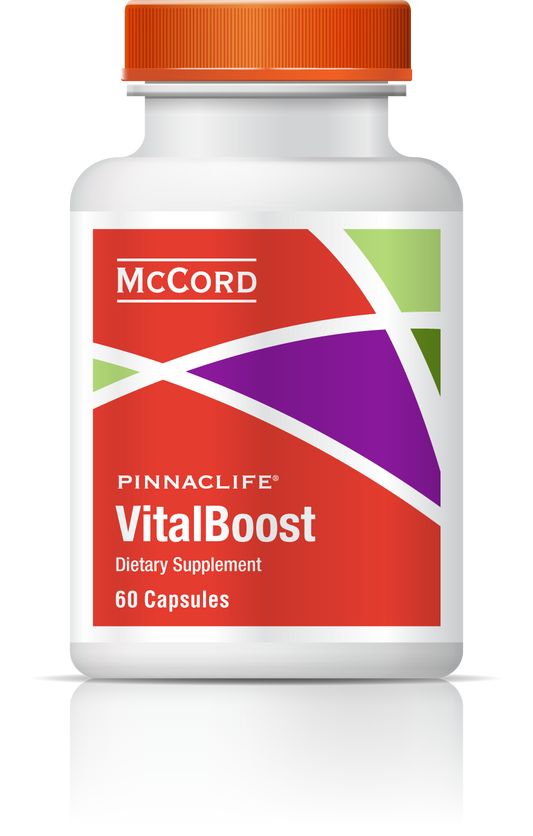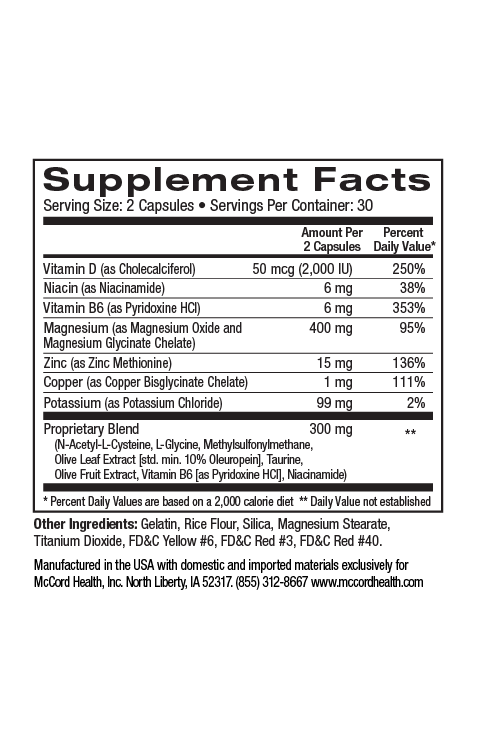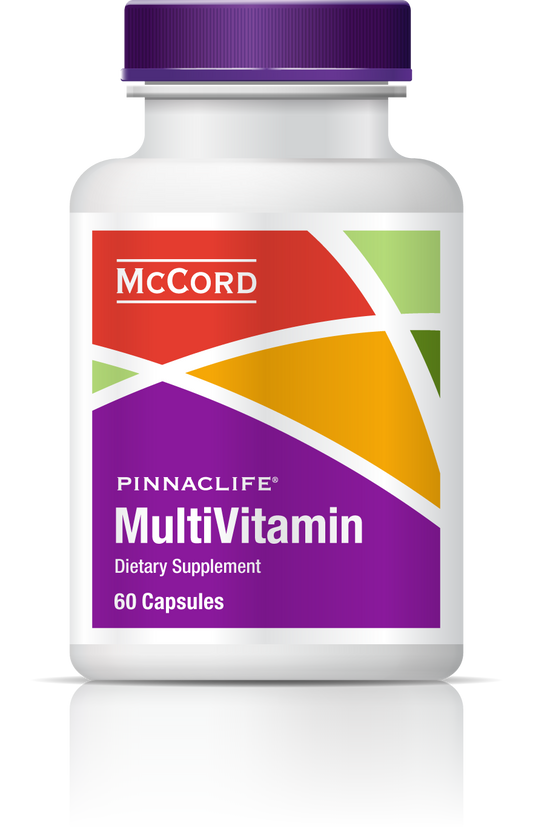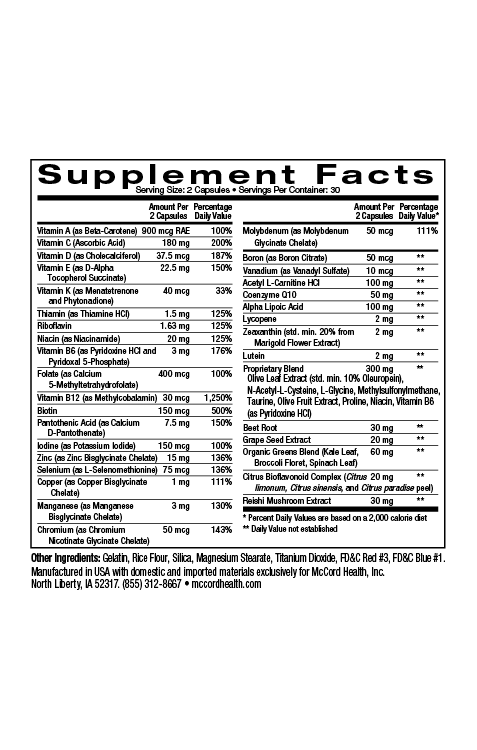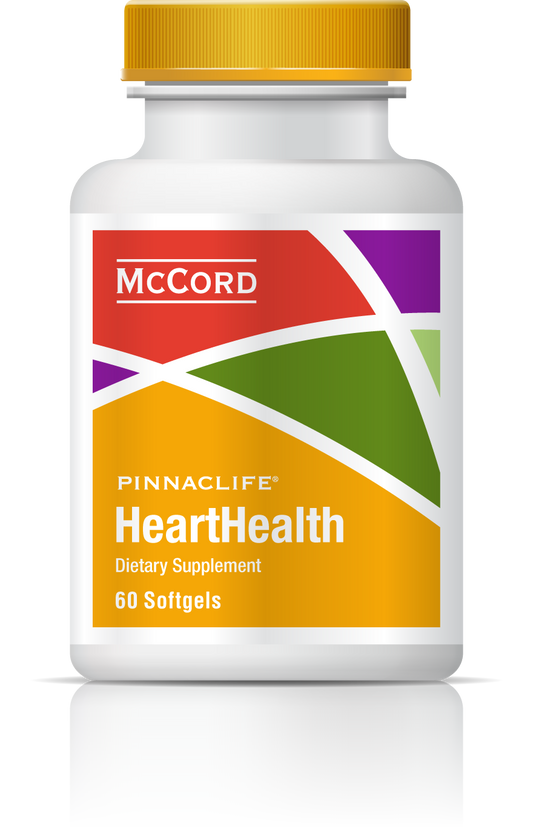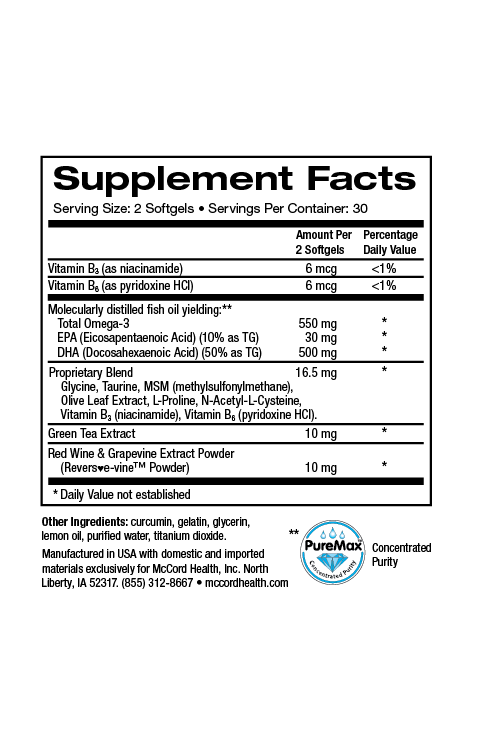Vitamin B12 (cobalamin) is a water-soluble B vitamin required by all cells in the body, especially brain, nerve, and blood cells. Symptoms of deficiency include anemia, fatigue, weakness and more. Vitamin B12 deficiency caused by inadequate dietary intake, genetics, and medications may require supplementation.
- Vitamin B12 is important for metabolic processes, DNA synthesis and is especially important for the formation of red blood cells and brain cells
- Absorption is dependent on the acidity of your stomach plus a special protein called “intrinsic factor”
- Many medications deplete vitamin B12 from your body including medications that alter the gastrointestinal environment and microflora
- Proprietary Blend supplements include vitamin B12 in the form of methylcobalamin, which is safer and more capable of being absorbed and utilized by your body
What is Vitamin B12?
Vitamin B12, also called cobalamin, is an important water-soluble vitamin that contains the element cobalt. The active forms of Vitamin B12 that are found naturally in your diet are called methylcobalamin and adenosylcobalamin. There is also a synthetic form used frequently in vitamin supplements called cyanocobalamin.
Vitamin B12 was first discovered by scientists researching a condition called pernicious anemia that was treatable by feeding people beef liver. The researchers eventually discovered that it was the high Vitamin B12 content in beef liver that was responsible for treating the anemia.
Vitamin B12 Deficiency
Vitamin B12 is essential for metabolic processes and DNA synthesis in all cells, but is particularly important for the formation of red blood cells and brain/nerve cells.
Many people do not realize they are deficient in Vitamin B12 until a blood test shows they are anemic, but early symptoms can include fatigue, weakness, tingling/pain/numbness of the extremities, neurological problems, mood changes, vision problems, inflammation/ulcers in the mouth, and trouble with balance.
Vitamin B12 is also closely tied to your body's production and utilization of the sleep hormone melatonin, so deficiencies frequently contribute to sleep disorders, insomnia, and daytime fatigue.
Causes of Vitamin B12 Deficiency
Vitamin B12 deficiency occurs when either you do not get enough from your diet, your body does not absorb it properly, or your body is metabolizing and excreting it faster than normal. The sections below describe each of these situations in more detail.
Vitamin B12 from your diet
Vitamin B12 is primarily found in animal based foods, especially seafood, red meat, poultry, eggs, and dairy products. Some of the best sources include oysters and beef liver.
If you are vegetarian or vegan, your options for Vitamin B12 are limited but can include nutritional yeast (brewer's yeast), nori, shiitake mushrooms, fortified foods (especially cereals), soy-based foods (tofu, tempeh, miso), and nutritional supplements. Even though these foods contain some Vitamin B12, it is much less than you would get from animal-based foods.
Absorption of Vitamin B12
Vitamin B12 has some special requirements that must be met in order to be properly absorbed. Absorption is largely dependent on the acidity in the stomach plus a special protein produced by the parietal cells in your stomach called "intrinsic factor."
Intrinsic factor binds with Vitamin B12 allowing for absorption further down in the intestines. Some people do not produce enough intrinsic factor because of genetic conditions, autoimmune disorders, medications, gastric bypass procedures, or other reasons. People with inadequate production of intrinsic factor are at increased risk of developing vitamin B12 deficiency.
People who have had bariatric surgery may also have limited absorption of Vitamin B12 because of the changes to the anatomy of the stomach and intestines.
Vitamin Depleting Medications
There are dozens of medications that can deplete nutrients, including Vitamin B12, from your body or interfere with absorption. Any medications that alter the gastrointestinal environment and microflora have the potential to reduce B12 absorption. The most common B12-depleting medications include:
- Antacids and Acid Blockers
- Antibiotics
- Anticonvulsants
- Antivirals
- Blood Pressure Medications
- Cholesterol-lowering medications
- Diabetes medications
- Hormone replacement
- Oral Contraceptives
- Breast Cancer Medications
If you are using medications for any of those conditions, it is important to discuss with your doctor or pharmacist if you may benefit from increasing your Vitamin B12 intake. In addition to prescription medications, some over-the-counter medicines, foods, and drinks (especially alcohol) may also deplete Vitamin B12.
Benefits from Vitamin B12
- Support formation of healthy blood cells
- Support healthy brain and nerve cells
- Improve sleep and wake cycles
- Support healthy metabolism
- Help cells produce energy
Methylcobalamin vs Cyanocobalamin
Like many vitamins and minerals, there are forms that your body prefers over others. Many supplements contain synthetic or semisynthetic forms of vitamins because they are cheaper to produce, however they are not found naturally in the diet and not the forms your body prefers. This is the case with Vitamin B12.
Most supplements use a form called cyanocobalamin which your body has to convert into other forms in order to be used. When your body converts cyanocobalamin, it releases small amounts of cyanide as a byproduct. Small doses of cyanocobalamin generally don't produce harmful amounts of cyanide, but larger doses over extended periods of time may be of greater concern.
In comparison, a more natural form of Vitamin B12, called methylcobalamin (also methyl B12 or methylated B12), is already in a form your body can absorb and utilize, and does not release cyanide into your body! Methylcobalamin is also more capable of crossing the blood-brain-barrier to nourish brain cells more effectively than cyanocobalamin.
The "methyl" part of methylcobalamin is utilized by the body in "methylation reactions" that are needed to reduce levels of a compound called homocysteine that is associated with cardiovascular disease.
Methylcobalamin is also essential for producing an important compound for brain health called S-adenosyl-L-methionine (SAMEe) that is known to play a role in mood and psychological health.
Vitamin B12 Dose
The recommended daily intake of Vitamin B12 is only 2.4 mcg per day for adults and children over 4 years old, but people typically need more than that, especially if they are using medications or following diets known to be low in Vitamin B12 including vegetarian and vegan diets. People have safely used doses of over 1,000 mcg per day, but due to absorption issues many health care providers recommended using smaller doses spread throughout the day.
Vitamin B12 toxicity is rare and typically only associated with very high doses of the cyanocobalamin form when taken for extended periods of time. When your body processes the cyanocobalamin form, it produces small amounts of cyanide as a byproduct (hence the name "cyano-") and this is thought to contribute in part to the effects seen with that specific form of Vitamin B12.
Something else to consider when supplementing Vitamin B12 is that it functions in combination with other B vitamins, minerals, and micronutrients. Like with most vitamin supplements, taking large doses of a single nutrient can contribute to deficiencies or imbalances of other nutrients. It is best to use supplements that provide a proper balance of nutrients instead of one single nutrient, especially if used in high doses for long periods of time.
Vitamin B12 in McCord Research Proprietary Blend Supplements
McCord Research only uses the methylcobalamin form of Vitamin B12 in its Proprietary Blend nutritional supplements. The Proprietary Blend MultiVitamin, BrainHealth, CalmMind, and EnergyBoost supplements each provide 30 mcg (500% DV) of methylcobalamin per serving.
If you are needing to increase your daily intake of Vitamin B12, we suggest starting with the Proprietary Blend MultiVitamin and consider also adding one or more of the BrainHealth, CalmMind, and/or EnergyBoost supplements depending on your personal needs. As always, remember that supplements are intended to compliment a healthy diet, not replace it, and you should always check with your personal health care provider before making changes to your routine.
Disclaimer: These statements have not been reviewed by the FDA. These products are dietary supplements and are not intended to treat, cure, or prevent any disease. The decision to use these products should be discussed with a trusted healthcare provider. The authors and the publisher of this work have made every effort to use sources believed to be reliable to provide information that is accurate and compatible with the standards generally accepted at the time of publication. The authors and the publisher shall not be liable for any special, consequential, or exemplary damages resulting, in whole or in part, from the readers’ use of, or reliance on, the information contained in this article. The publisher has no responsibility for the persistence or accuracy of URLs for external or third party Internet websites referred to in this publication and does not guarantee that any content on such websites is, or will remain, accurate or appropriate.

